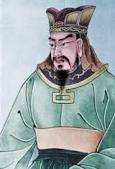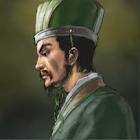Bing Chia | Jia (Military School)
Bing Jia is a Military School that focuses on the study of military strategies, and treatises. The highest priority of the state is to keep its peace and security. This can be met if one is prepared for war. Major proponents in this school and Sunzi and Sun Bin.
Sun Zi

Sun Tzu, also known as Sun Zi (Chinese: 孫子; pinyin: Sūn Zǐ; c. 544 – 496 BC) was the Chinese author of The Art of War (Chinese: 兵法), an immensely influential ancient Chinese book on military strategy. His book has been translated into many languages and found many applications in modern times.
The name Sun Tzu ("Master Sun") is an honorific title bestowed
upon Sun Wu (孫武; Sūn Wǔ), the author's name. The character wu, means
"military", is the same as the character in wu shu, or martial art.
Theory of Sun Tzu
The Art of War is a systematic guide to strategy and tactics for rulers and commanders. The book discusses various maneuvers and the effect of terrain on the outcome of battles. It emphasizes the importance of gathering accurate information about the enemy's forces, dispositions and deployments, and movements.
Know the enemy and know yourself, and you can fight a hundred battles with no danger of defeat.
Sun Zi stresses the unpredictability of battle, the use of flexible strategies and tactics, the importance of deception and surprise, the close relationship between politics and military policy, and the high costs of war. The futility of seeking hard and fast rules and the subtle paradoxes of success are major themes. The best battle, Sun Zi says, is the battle that is won without being fought.
Sun Zi laid down the essential rules of guerrilla tactics in The Art of War, advocating the use of deception and surprise to harass and demoralize the enemy until sufficient military strength was built up to defeat him in battle, or until political and military pressure caused him to seek peace.
"All warfare,” he said, “is based on deception. Hence, when able to attack, we must seem unable; when using our forces, we must seem inactive; when we are near, we must make the enemy believe that we are far away; when far away, we must make him believe we are near. Hold out baits to entice the enemy. Feign disorder, and crush him."
The book's insistence on the close relationship between political considerations and military policy greatly influenced some modern strategists. Sun Zi's work is also one of the first to recommend the physical conditioning of armies prior to combat. He stated that physical training exercises should be basic in nature, with movements similar to today's jumping jacks and arm circles.
Sun Bin

Sun Bin was believed to be a direct descendant of the distinguished military theorist Sun Tzu (Sun Wu), who flourished during the mid-fourth century B.C. during China's Warring States era, a period of unprecedented violence. He was named Sun Bin in ancient historic books because he suffered corporal punishment, which is named Bin, a form of punishment in ancient China. (Depending on the romanization, Sun Bin is also spelled as Sun Pin.)
The Warring States era was a period "… where independent nation states attempted to annihilate each other through incessant and escalating battles, and military tactics increased exponentially in sophistication and brutality (especially with the development of new war technologies). During mid-fourth century B.C. in China, it was common to see 80,000 soldiers perishing in a single defeat." At the same time, these wars of appropriation reduced the number of states to a group of seven powerful states. For that era, warfare was increasingly a way of life as well as a way of death. This quality of influence is found throughout Sun Bin's book.
Sun Bin was considered by many scholars as one of the most outstanding military strategist after Sun Tzu. Sun Bin possessed exceptional talent even in his early years. There were stories of Sun Bin having the ability to recite Sun Tzu: The Art of War and other Chinese classics by verbatim. His genius was envied by a classmate, Pang Juan, who later became a strategic general in the state of Wei. Afterward, Pang Juan deceived Sun Bin into going to Wei country and then framed him for being a traitor. Sun Bin suffered the corporal punishment of having his kneecap chopped off and the Chinese character "Traitor" stamped on the side of his head.
With assistance, Sun Bin escaped from the grasp of Pang Juan to the State of Qi. Once Sun Bin arrived at the State of Qi, he was immediately nurtured back to health and later, based on his reputation for strategic thinking, appointed to be the principal military advisor to King Wei of the Qi State.